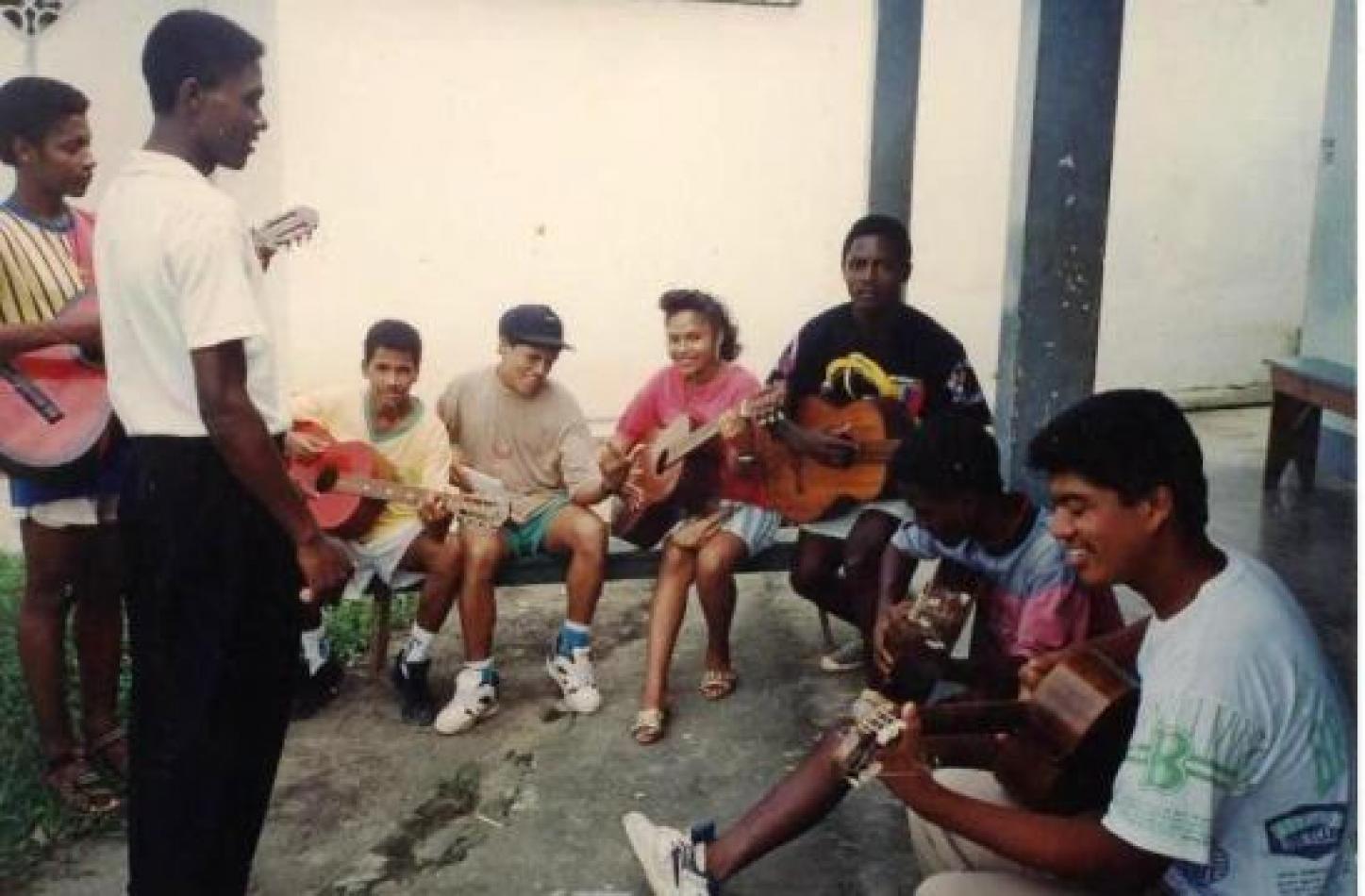Daniel Comboni
Misjonarze Kombonianie
Obszar instytucjonalny
Inne linki
Newsletter
Thursday, July 19, 2018
Comboni Father Seraphin Kakwata, Congolese, shares his experience being amongst afro-descendent communities in S. Lorenzo parish, in the province of Esmeraldas, Ecuador. In 2013, I was assigned to San Lorenzo, in the province of Esmeraldas, in north-western Ecuador.
On Mondays I work from the parish centre, which includes the main church building and other meeting spaces. We also have 14 chapels that are spread out throughout the area and each has corresponding small Christian communities. On Thursdays, I am committed to visiting families and the sick. I dedicate a great part of my time and work to accompanying the 24 rural communities which are my responsibility.
The population in these areas is made up of Afro-Colombians and Afro- Ecuadoreans, as well as a small group of indigenous. In these rural areas I visit the families, provide training and support to the catechists, accompany the small Christian communities, celebrate the sacraments and promote social justice.
All of this work is done in collaboration with the community. My desire is to share the message of Jesus with those communities that are even more impoverished. The people of San Lorenzo are devout. Mary has a special place in the religiosity of people, and some houses have altars dedicated to San Antonio de Padua or San Martin de Porres. Here devotional practices are the antidote again witchcraft and superstitions.
Our work is to apply a good dose of evangelisation and Christian education to help deepen and mature the faith of the people. The Comboni Missionaries have been working in this area of Ecuador for the past 60 years. Over that period they have focused on the evangelisation and the formation of community leaders. Nevertheless, there remain many challenges. Pastoral ministry to families remains one of the biggest challenges because there is still a high amount of domestic violence against woman, and many families have no father figure present. It is not uncommon to see a single mother raising five children.
In many homes the woman plays multiple roles: mother, father and grandparent, which in turn is a challenge for all members of the family. Another observation is that the chapels are almost empty on Saturdays and Sundays, which at times has made me feel that my presence and ministry is failing to make an impact. At times I leave with a lot of enthusiasm for the communities, but return discouraged. The chapels are full during funerals, First Communion and Confirmation celebrations. Since my arrival I have only celebrated two weddings.
Of all the people that help in the parish, only a few persevere. It has been noted that a commitment to a longer period of service in the parish is a problem and something that needs to be examined. The enthusiasm that shows itself at first with some lay leaders, soon dies off in a matter of time. For that reason half of our chapels do not have catechists or other persons who can attend to the needs of the people. With all the challenges that I have just described, and many others that I have not commented on, but together form part of our missionary life, I am very content to live in the midst of this Afro-descendent community. I am here as a response to God, who has called me to religious life as a missionary and priest. God has asked me to leave my family and my country of the Democratic Republic of Congo and to live and share my faith with my brothers and sisters in Ecuador.
Comboni Missionaries




